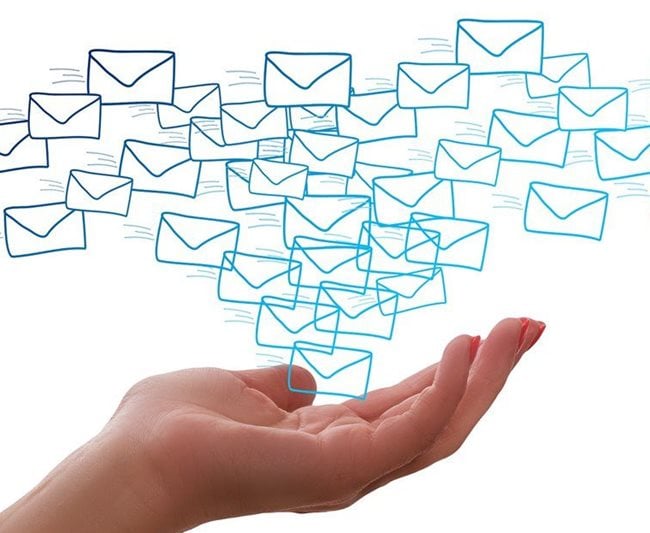
Subscribe & Follow
Jobs
The rebirth of email as a marketing tool

Even though many businesses might have been tempted to focus primarily on social media activities, the reality is that this, along with public relations and email, must form part of an integrated campaign to be truly effective. While social media and PR can be used to great effect for creating awareness, email can nurture the relationship to conversion and retaining customers thereafter.
Email has certainly become more dynamic than what was technically possible in the past. Now, interactive visual elements can be introduced to make this communication platform stand out. For example, the introduction of product blocks that include pricing and click-through directly to the site brings the online shopping experience directly to the customer’s inbox.
Advances in automation have also greatly benefitted email. Communications can now be delivered via automated journeys that adapt based on the users’ engagement and behaviour to save on time and resources while providing a seamless and much more personalised experience - at scale. More organisations are becoming comfortable with this way of working as it frees up their specialists to focus on strategy and the actual content that goes into each message. For instance, when it comes to online shopping, automated emails such as abandoned cart, order notifications, and loyalty reward reminders can help to keep a brand top of mind while enticing the shopper to either complete a purchase or to purchase more.
Here are some of the other major elements impacting email marketing at the moment:
Maintaining communication
Trends from the Covid-19 pandemic show a rise in marketers getting involved in communications after the sale with email playing a vital part in this. Furthermore, the importance of email in a distributed work environment cannot be ignored. Pre-onboarding, onboarding, and exit journeys can be set up to ensure that the company keeps two-way lines of communication open with staff. This is essentially when employees are not coming into the office as often as they used to.
Fundamentally, email meets people on their terms when they are ready to engage. With the rise of personalised content, and more effective use of data and automation, brands can share highly relevant content targeted to the right person at the right time.
Regulatory compliance
Compliance with the Protection of Personal Information Act (POPIA) is set for 1 July this year. This means companies are under pressure to ensure all the relevant data protection boxes, amongst others, have been ticked.
However, POPIA will not put marketers out of jobs or kill marketing initiatives. Instead, it can result in improved return on investment as databases will contain people who are genuinely interested in engaging with a brand. Yes, lead lists may be smaller, but the quality of those contacts will be better.
Of course, marketers must educate themselves around the law and conduct a proper risk assessment of the activities they are considering. With time running out for compliance, Everlytic has partnered with Elizabeth de Stadler from Novation Consulting on a guide that helps provide context and helpful steps when it comes to direct marketing. Now is not the time to rush things, but rather get compliance right or risk facing significant financial fines and other penalties.
Numbers talking
According to the Everlytic Email Marketing 2020 Benchmarks, email engagement rates last year were higher than they have been in six years. They are now sitting at averages of a 3.51% click-through rate and a 15.23% click-to-open-rate. Unsubscribes reduced by 14% and complaints by 67% when looking at the overall average.
Hardly surprising, but the pandemic saw desktop use dropping substantially while mobile and Web have become more popular options. This accentuated the already existing trend away from desktop computers while also illustrating how flexible email is as a medium with responsive layouts that can tailor the content for any device size.
During the Black Friday period last year, customers used the Everlytic platform to send approximately 26% more emails when compared to 2019 figures. In the week running up to Black Friday and continued through to Cyber Monday, our email servers processed an average of 1.7 terabytes a day – the equivalent of 10,000 hours of high definition video streaming.
A new (email) world
By now, companies must realise that email is not just about newsletters but communication in general. It therefore must form part of the overarching strategy on what the business is trying to achieve. Understanding the needs of existing (and potential) customers and crafting content that is both interesting and valuable is key. Email helps the organisation reach its audience on their terms when they choose to engage as opposed to forcing them when they are trying to relax or disengage with the real world.
It is clear that the marketing environment has changed not only because of the pandemic but also due to evolving technology. This is resulting in several key trends to take note of that will likely shape email communications in the months to come.
Marketers will spend more time than before helping to upsell and retain customers. As mentioned, POPIA will have a positive effect on email and engagement. Email automation will strengthen with brands seeing significant value in integrating their existing systems into their communication platform for an even more personalised approach. This can result in higher retention rates, increase in sales productivity, and more conversions.
By using email journeys that respond to customer behaviours, a company can set itself apart from its competitors. And in these challenging economic conditions, this becomes a critical business advantage.
















